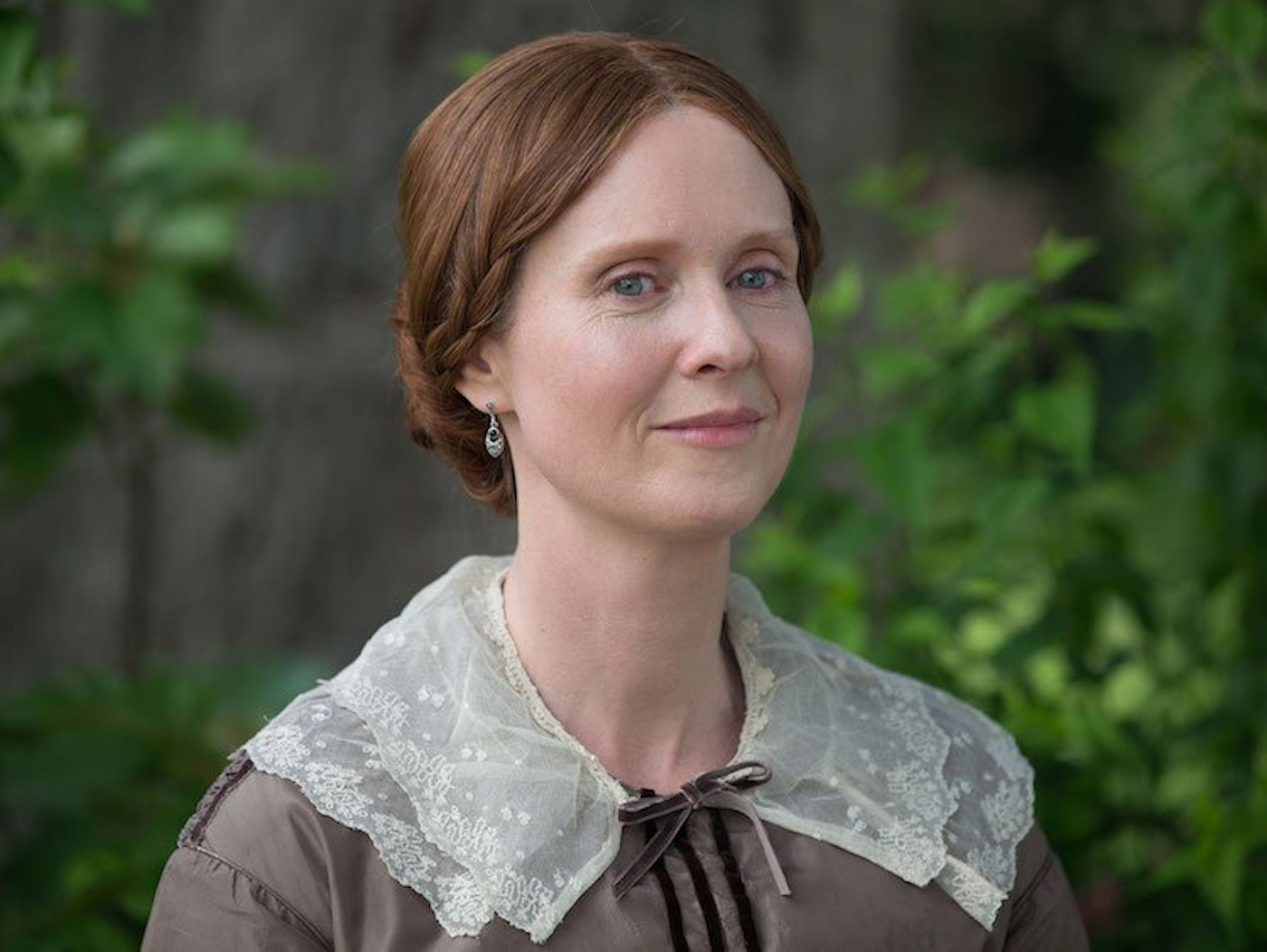Ever since coming out as bisexual in 2010, Cynthia Nixon has been a fierce advocate for gay rights. Ahead of the historic Supreme Court ruling legalizing same-sex marriage, the actress traveled across the country campaigning for marriage equality. But, while more than eager to fight for the LGBTQ community, the actress has been reticent to speak on her queerness after she faced a firestorm of backlash when she told the New York Times she “chose to be bisexual.” The flurry of criticism was so strong in fact that Nixon was forced to clarify the specifics of her bisexuality in an official statement.
Nixon stepped out of her fear for a brief, honest second in a new interview with OUT. Promoting her role as Emily Dickinson in the recently released A Quiet Passion, a biopic about the unquestionably feminist poet, Nixon used the opportunity to open up. “I think it’s more that people don’t really get bisexuality,” Nixon said about the criticism and doubt she comes across. “And they also don’t really believe in it.”
Nixon is not the only openly bisexual celebrity frequently cornered into defending her sexual identity. During a recent interview with The Guardian, Kristen Stewart railed against the misconception that bisexuals are simply “confused.” “You’re not confused if you’re bisexual,” Stewart said. “It’s not confusing at all. For me, it’s quite the opposite.”
And it’s likely that Emily Dickinson may have come across the same doubters and naysayers, Nixon believes. Dickinson critics and fans have spent a lot of time dissecting the poet’s letters, attempting to pinpoint her exact attractions. Even though the topic is not discussed in the film, Nixon revealed her strong conviction that, like her, Dickinson also identified as bisexual.
“I think she was kind of equal opportunity,” Nixon hypothesized. “I think she had these very passionate attachments to men and to women, and with her sister-in-law Susan, it seems very much like a love story, whether it had a physical component or not, if you read the letters… Emily had a desire to spend her life with Susan.”
However, Nixon believes there are more important things to do right now than trying to prove or figure out someone’s bisexuality (like, leading an anti-Trump rally outside of Stonewall Inn.) “There are worse problems out there than whether people get the exact shade of my sexuality.” Amen.
